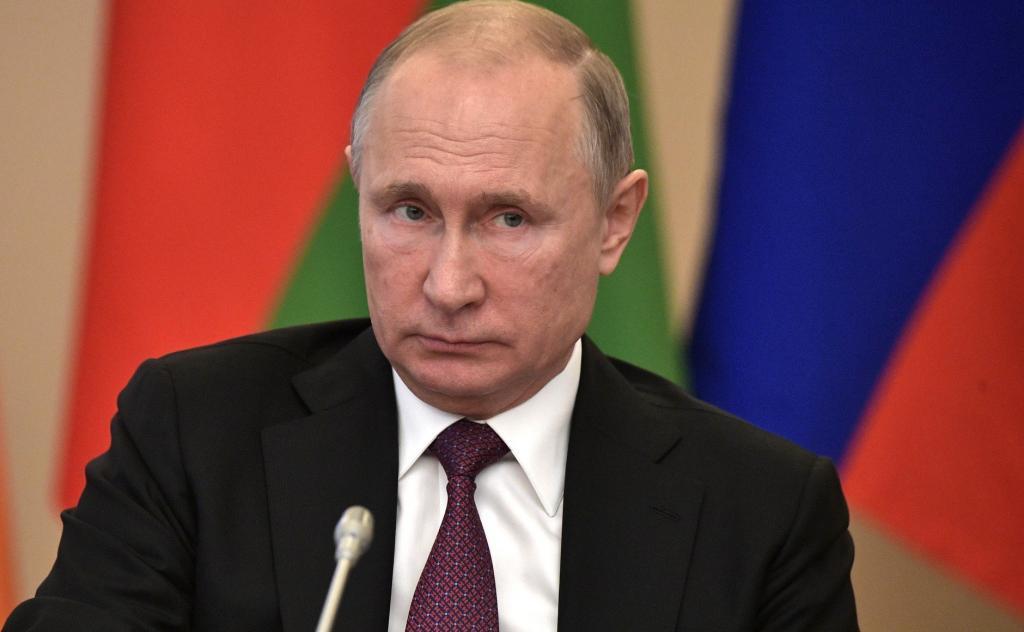The Estonian Central Council in Canada and the Association of Estonians in Sweden have issued a joint statement in a response to the recent article by the Russian president, Vladimir Putin, that, according to them, falsifies history, calling it a hindrance of mutual understanding and the pursuit of truth; Estonian World publishes the statement in full.
The recent article, “The Real Lessons of the 75th Anniversary of World War II”, in the ‘National Interest’ by Russian President Vladimir Putin, is a grievous affront to the victims of Soviet totalitarianism as well as a continuous attempt to falsify and distort historical facts.
The article spuriously states that the Soviet Union’s Treaty of Non-Aggression (widely known as the Molotov-Ribbentrop Pact) with Nazi Germany was unavoidable and signed under the duress of precarious geopolitical circumstances; that the illegal annexation of Estonia, Latvia and Lithuania was as a result of a reciprocal agreement with the occupied states and concluded after the latter gave due parliamentary assent.
Further, the claim that the governments of the Baltic states were sustained intact after the Soviet occupation; and the implication that the Soviet military forces that defeated Germany in Central and Eastern Europe were not complicit in enforcing the political repression in these captive nations following World War II, are egregious distortions of the fact. The 1944 Soviet occupation resulted in the executions of thousands of innocent citizens and mass deportations in freight train wagons of men, women and children to harsh work camps throughout Siberia. Many perished in those inhumane conditions.
Russia is rationalising the crimes of Stalin
If it is important to the Putin Regime to “understand” (and not forget) the torment and hardships “arising from the Second World War, then it is morally imperative that the Putin regime allow for a fully transparent accounting and judgement of the Soviet era perpetrators of their crimes against humanity.
The Estonian World Council categorically refutes the above claims by the Russian president. Estonians and peoples of Central and Eastern Europe find it entirely unacceptable for the Russian leadership to assume and elaborate on Communist-era false narratives justifying its actions before, during and after the Second World War.
We find it repugnant for Russia to be rehabilitating the repressive Soviet period and thereby rationalising the appalling crimes of Joseph Stalin and other totalitarian Soviet rulers. This same development, as clearly indicated by Vladimir Putin’s message in the “National Interest”, helps legitimise its increasingly authoritarian domestic rule and vindicate Russia’s aggressive foreign policy.
As a self-proclaimed successor to the Soviet Union, the current Russian government has adopted the Communist era narrative of glorifying the Red Army’s triumph over Nazi Germany. In essence, Russia is attempting to weaponise the memory of World War II.
To dismiss the Russian distortions of historical facts as simply a different interpretation of past reality is to absolve the Soviet Union of the suppression of the Russians themselves and numerous other nations, and diminish the sacrifice of millions of victims of Soviet crimes.
Russia must endorse human rights and the freedom of speech
Russia refuses to accept the equivalency of Communist and national-socialist repressions and labels this comparison as promoting fascism. This is not simply a “memory war” that is being played out between Russia and the West. This is Russia’s current government’s blatant attempt not only to absolve the Soviets from collusion with Nazi Germany in initiating the Second World War but also to cultivate international non-engagement or even acceptability for its expansionist aims today.
In the late 1980s and early 1990s, with the Soviet regime change facilitated by leaders Gorbachev and Yeltsin, there was broad hope and optimism that the Russian people would begin to enjoy the essence of democracy and benefit from the pursuit of human rights and justice for all. Sadly, more recent history shows a retrograde slide of the Russian government regime to an authoritarian rule. The unjustified repression and persecution of democracy advocates and regime opponents in modern day Russian cannot be denied or ignored.
If the Putin regime is so motivated by its stated “need for truth and objectivity”, its promise to be “honest and impartial”, its “commitment to high humanist ideal and values” and its stated mission of “enhancing the stability…and prosperity and well-being of all states”, then it must guarantee its own non-aggression and its unconditional endorsement of human rights, freedom of speech, freedom of the press and the pursuit of truth and justice.
Any “Summit of Five” (as proposed by Russia with leaders of Russia, China, Great Britain, France and the US) must be preceded by an endorsed proclamation of non-aggression guarantees and the upholding of human rights.
The Estonian Central Council in Canada and the Association of Estonians in Sweden will continue to speak up for an accurate reading of history and the upholding of human rights and freedoms.
The Estonian Central Council in Canada
The Association of Estonians in Sweden
Cover: The Russian president, Vladimir Putin. Photo by the Office of the Russian President.

